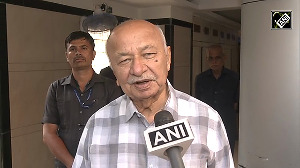Pakistani rights activist Ansar Burney on Monday he would launch a campaign against corruption and terrorism in his country after Eid-ul-Fitr, mirroring an anti-graft drive by activist Anna Hazare in India that has gained thousands of followers.
Pakistan is confronting a "dire and painful period in its history, with rampant and continuously growing corruption and terrorism destroying every fabric of our nation and any prospects of a decent future for our children and grandchildren," Burney said in a statement.
Burney made no reference to Hazare, whose movement has captured public imagination in India, but said his movement would get underway after the Islamic festival of Eid-ul-Fitr that will be celebrated at the end of August.
"It is now up to the civil society to take steps to rid the country of this evil before it is too late. The Ansar Burney Trust will kick-start a massive anti-corruption campaign and anti-terrorism movement following Eid as a first step towards saving our country," he said.
Burney said his proposed movement is aimed at bringing "the nation together and taking a stand that corruption will no longer be tolerated".
The campaign will "expose the corrupt, whether they are in politics, our bureaucracy, education institutions, law enforcement agencies, businesses, charities, sports or even the judiciary," he said.
He alleged that politicians had "joined hands and completely plundered this country to the brink of destruction".
Burney's announcement came at a time when Hazare is leading a major anti-corruption movement in India.










 © 2025
© 2025